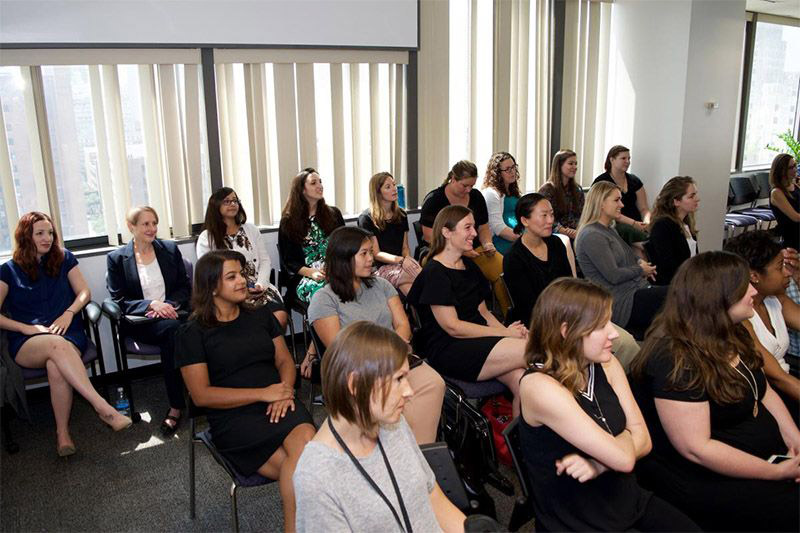
Overview
Our program is organized to teach the basic and clinical sciences of infant, child, and adolescent psychiatry. Fellows work with faculty to provide quality care in diverse treatment settings including hospital, community, and school-based practices. The Tulane CAP Section includes internationally known infant mental health clinicians and researchers; fellows have opportunities to develop clinical expertise working with very young children. Fellows value the strength of the faculty’s perspectives as clinicians, researchers, and child advocates. Psychotherapy is a priority here at Tulane. Fellows have weekly outpatient psychotherapy clinic, where they can implement evidence-based treatments under close supervision. Read More
Additionally, we dedicate one full day (every Friday) to academic activities. Fridays are protected academic time – weekly supervisions, grand rounds, and interdisciplinary didactics provide foundations for clinical learning in CAP. Didactics include case based learning of psychopharmacology and psychopathology, development, infant mental health, adolescence, neurobiology, cultural psychiatry, experiential evidence-based therapy training, specialized clinical modules, ethics, and forensic child and adolescent psychiatry, as well as a clinical issues course and intensive individual supervision that often includes video review of therapy. 2 weeks of vacation per 6 months (4 weeks per year) may be taken with faculty and training director approval at any time.
Clinical Experiences
- Tulane Center for Autism and Related Disorders (TCARD)
- Juvenile Justice Intervention Center (JJIC)
- 4 months Inpatient Psychiatry
- 3 months Consultation Liaison
- Weekly Psychotherapy Clinic
- 1 month Pediatric Neurology
- Elective Community Psychiatry at Metropolitan Human Resouces District (MHSD)
Didactic Experiences
- Grand Rounds
- Friday Didactics Series including case-based learning
- Individual & Group Supervision including specific evidence-based treatments
- Journal Club
The emphasis during the first year is on development and psychopathology throughout the life cycle. There is a focus on understanding illness and adaptation in the context of the family. This early orientation to thinking in terms of psychosocial growth and developmental psychopathology facilitates consolidation of the identity as a "child and family" oriented practitioner.
Clinical Experiences
12 months Outpatient Clinics
- Longitudinal psychotherapy experiences throughout the two years of training.
- Tulane Comprehensive Assessment and Treatment Team (TCATT)
- Tulane Infant Mental Health Services (TIMHS)
- Tulane Center for Autism and Related Disorders (TCARD)
- Gender & Sexuality at Ruth Fertel Tulane Community Health Center
- Early Psychosis Intervention Clinic (EPIC)
- Community Psychiatry at Metropolitan Human Resources District (MHSD) & Crescent Care FQHC
- School based mental health through Access Health FQHC
- Forensics and Juvenile Justice Intervention Center
Didactic Experiences
- Grand Rounds
- Friday Didactics Series including cased-based learning
- Individual & Group Supervision including specific evidence-based treatments
- Journal Club
The second year provides trainees the opportunity to consolidate their child and adolescent psychiatry skills as well as to prepare for their post-training professional life. Tulane CAP training focuses on outpatient, community-based treatment, with many opportunities to work with traditionally underserved patients from birth through adolescence. At this stage of training, the trainees are given opportunities for autonomy as well as substantial supervision time and on-site clinical supervision with a faculty member. We believe it is important for the fellows to be proficient in psychopharmacological treatment and to master a range of psychotherapy modalities with children and their families. The fellows have the opportunity to learn cutting-edge evidence-based therapies such as preschool cognitive behavioral therapy and parent management training, as well as therapies from a range of diverse theoretical frameworks. Trainees are also present at Grand Rounds with the supervision and mentoring from Dr. Charles Zeanah, Jr., Professor of Psychiatry & Pediatrics, Exec. Dir. Infant Institute, Medical Director of ECSS.
